What are you looking for at Aqrani library?
-
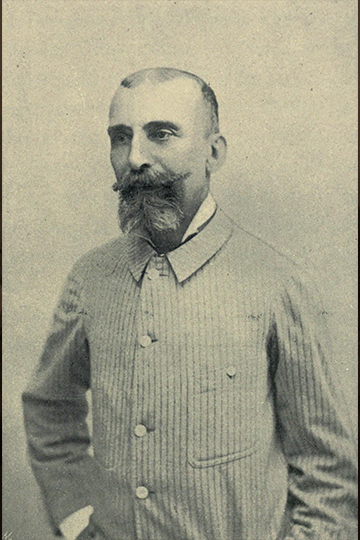
Ernest Daudet
Louis-Marie Ernest Daudet (31 May 1837 – 21 August 1921) was a French journalist, novelist and historian. Prolific in several genres, Daudet began his career writing for magazines and provincial newspapers all over France. His younger brother was Alphonse Daudet. Ernest Daudet was born in Nîmes, an old Roman city of Languedoc, France.His father, Vincent Daudet, was a silk merchant whose lack of business sense eventually involved him in bankruptcy. His mother, Adeleine Reynaud, was descended from a respected Provençal family. In 1857 he went to Paris with his brother in order to gain a livelihood through literary pursuits. For a time he managed the Journaux Officiels and the Petit Moniteur. He was also the secretary-editor of the Legislative Corps and chief of the Cabinet of the Senate.He died in Petites-Dalles in 1921, aged 84.
-
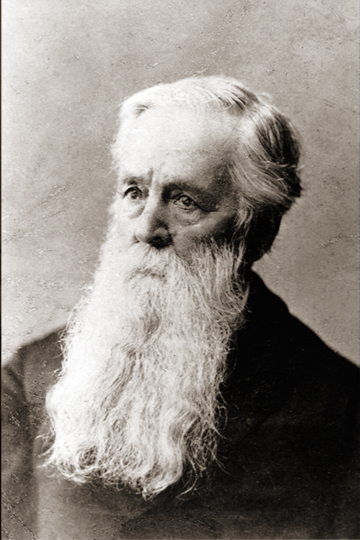
Ernest Boissières
Ernest Valeton de Boissière (1811-1894), owner of the Domaine de Certes in Audenge (Gironde, France), who emigrated to the United States and founded in 1870 the Cooperative Farm of Silkville (Co Franklin, Kansas, USA). A humanist and Fourierist refractory to Louis-Napoléon Bonaparte, Valeton de BOissière bequeathed his two properties to the school works of the City of Audenge in France, and to an orphanage of the Odd Fellows in Silkville, Williamsburg (Ks, Co Franklin).
-
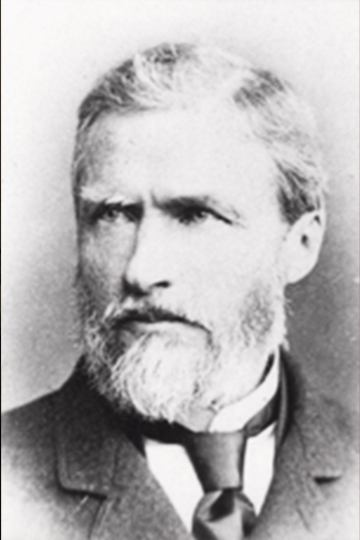
Ernest du Laurens de La B...
Belonging to the Laurent de la Barre family, he is the son of Alexandre-Marie-François du Laurens de la Barre (born October 21, 1783 in Landévennec, controller then lieutenant of customs in Lorient (Morbihan) and Marie-Anne -Louise (known as Nancy) Guegot de Traoulen (born April 23, 1791 in Champtocé-sur-Loire (Maine-et-Loire). He completed his secondary studies at the college of Quimperlé, then studied law in Rennes. used to spend his holidays at the manor of Coat ar Roc'h in the property of his paternal grandfather Antoine-Marie-François-Jacques du Laurens de la Barre, former seneschal of Concarneau and justice of the peace in Sizun, he begins to be interested in the tales and legends told by the peasants of the surroundings.On October 28, 1846 Elisa Sidonie Ply (born October 16, 1821 in Clermont (Oise) and died October 12, 1905) with whom he had two children Ernest-Marie -André du Laurens de la Barre, born November 1, 1848 in Nozay (Loire-Atlantique) and Félix-Alexandre-Jean- Marie du Laurens de la Barre, born in 1852. Notary in Vannes (where he had the Villa Saint-Guen built in the north of the city), he was justice of the peace in Sizun, he had the manor of Coat ar Roc 'fully restored. h in Commana, where he settled definitively from 1874 and where he died on December 18, 1881. Appointed to Bouaye (Loire Inferior) by decree of July 1, 1879, he renounced this appointment.
-
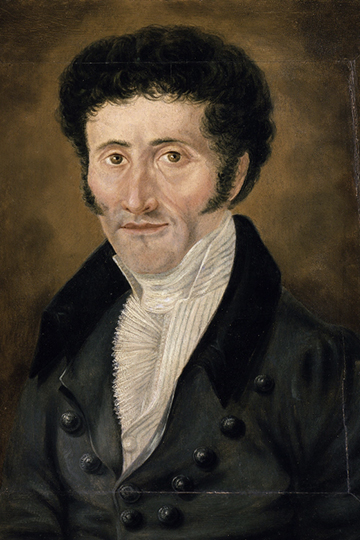
Ernst Thedor Amadeus Hoff...
Ernst Theodor Amadeus Hoffmann (commonly abbreviated as E. T. A. Hoffmann, born Ernst Theodor Wilhelm Hoffmann( 24 January 1776 – 25 June 1822) was a German Romantic author of fantasy and Gothic horror, a jurist, composer, music critic and artist. His stories form the basis of Jacques Offenbach's opera The Tales of Hoffmann, in which Hoffmann appears (heavily fictionalized) as the hero. He is also the author of the novella The Nutcracker and the Mouse King, on which Pyotr Ilyich Tchaikovsky's ballet The Nutcracker is based. The ballet Coppélia is based on two other stories that Hoffmann wrote, while Schumann's Kreisleriana is based on Hoffmann's character Johannes Kreisler.Hoffmann's stories highly influenced 19th-century literature, and he is one of the major authors of the Romantic movement.
-
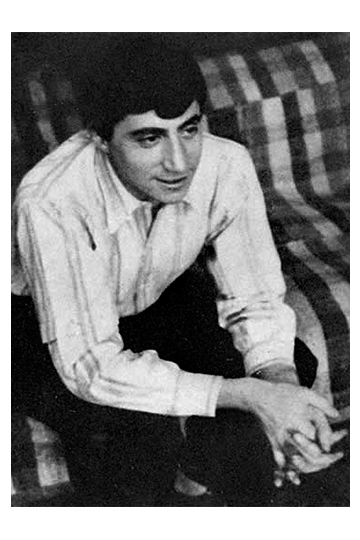
Eugène Dabit
Eugene Dabit (21 September 1898 in Mers-les-Bains – 21 August 1936 in Sevastopol) was a French socialist writer.He was part of the group "proletarian literature" and had a great success for his novel L'Hôtel du Nord which won the du Prix du roman populiste and was filmed in 1938 by Marcel Carné. He maintained an important correspondence with Roger Martin du Gard. Dabit was a friend and literary and political associate of André Gide, he died while accompanying Gide on a trip to the Soviet Union in 1936.Dabit was also an amateur artist.
-
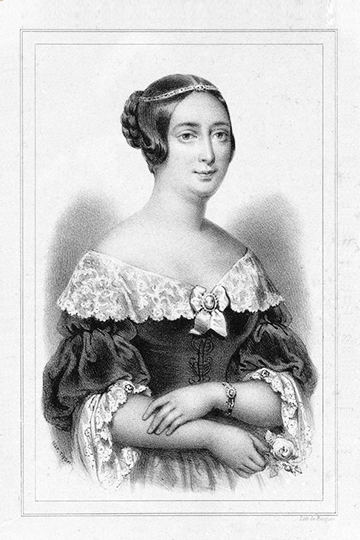
Eugénie Foa
Eugénie Foa (Bordeaux, 1796 - Paris, 1852) was a French writer, at times using the nom de plume "Maria Fitzclarence."Eugénie Foa (born Esther-Eugénie Rodrigues-Henriques) was by descent a Sephardi Jew, her mother being a member of the Gradis family, and both parents being members of the Bordeaux Jewish community. On the death of her father in 1826, the family moved to Paris. Eugenie married young, but after leaving her husband Joseph Foa shortly after their wedding, she began to support herself by writing.Her sister, Leonie, was the wife of composer Fromental Halévy and she is a cousin of Olinde Rodrigues.
-

Eunice M. Crétin
Books: Mr. Trotty's Book
-
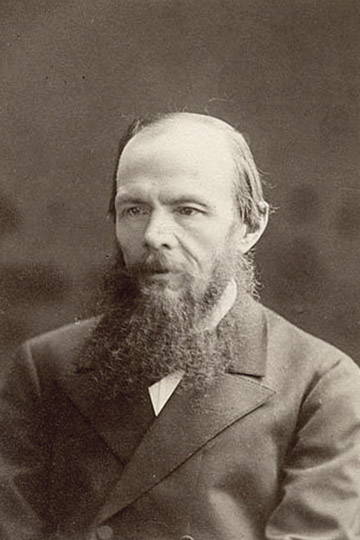
Fiodor Dostoievski
Fiodor Mikhailovich Dostoevsky 30 October 1821 – 28 January 1881), sometimes transliterated Dostoyevsky, was a Russian novelist, philosopher, short story writer, essayist, and journalist. Dostoevsky's literary works explore human psychology in the troubled political, social, and spiritual atmospheres of 19th-century Russia, and engage with a variety of philosophical and religious themes. His most acclaimed works include Crime and Punishment (1866), The Idiot (1869), Demons (1872), and The Brothers Karamazov (1880). Dostoevsky's body of works consists of 12 novels, four novellas, 16 short stories, and numerous other works. Many literary critics rate him as one of the greatest psychological novelists in world literature. His 1864 novel Notes from Underground is considered to be one of the first works of existentialist literature.Born in Moscow in 1821, Dostoevsky was introduced to literature at an early age through fairy tales and legends, and through books by Russian and foreign authors. His mother died in 1837 when he was 15, and around the same time, he left school to enter the Nikolayev Military Engineering Institute. After graduating, he worked as an engineer and briefly enjoyed a lavish lifestyle, translating books to earn extra money. In the mid-1840s he wrote his first novel, Poor Folk, which gained him entry into Saint Petersburg's literary circles. Arrested in 1849 for belonging to a literary group that discussed banned books critical of Tsarist Russia, he was sentenced to death but the sentence was commuted at the last moment. He spent four years in a Siberian prison camp, followed by six years of compulsory military service in exile. In the following years, Dostoevsky worked as a journalist, publishing and editing several magazines of his own and later A Writer's Diary, a collection of his writings. He began to travel around western Europe and developed a gambling addiction, which led to financial hardship. For a time, he had to beg for money, but he eventually became one of the most widely read and highly regarded Russian writers.Dostoevsky was influenced by a wide variety of philosophers and authors including Pushkin, Gogol, Augustine, Shakespeare, Dickens, Balzac, Lermontov, Hugo, Poe, Plato, Cervantes, Herzen, Kant, Belinsky, Hegel, Schiller, Solovyov, Bakunin, Sand, Hoffmann, and Mickiewicz.His writings were widely read both within and beyond his native Russia and influenced an equally great number of later writers including Russians such as Aleksandr Solzhenitsyn and Anton Chekhov, philosophers Friedrich Nietzsche and Jean-Paul Sartre and the emergence of Existentialism and Freudianism. His books have been translated into more than 170 languages.
-
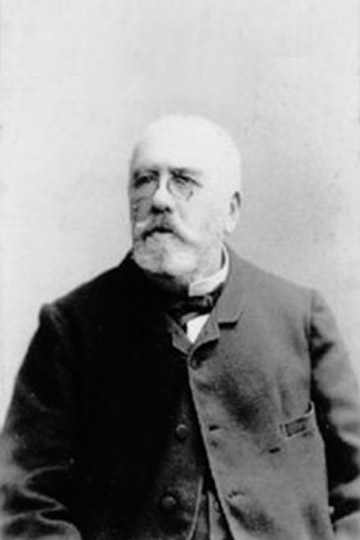
Fortuné du Boisgobey
Fortuné Hippolyte Auguste Abraham-Dubois (11 September 1821 – 26 February 1891), under the nom de plume Fortuné du Boisgobey, was a French novelist. Fortuné du Boisgobey was born at Granville (Manche), and graduated from the Lycée Saint-Louis. He served as paymaster to the Army of Africa through several campaigns in Algeria from 1844 to 1848. His parents were wealthy, yet at forty or upwards, he took to writing.In 1843, using the name Fortuné Abraham-Dubois, he made his literary debut in the Journal d'Avranches with a series entitled Lettres de Sicile recounting a voyage he had taken the year before. His first successful novel, Les Deux comédiens appeared in 1868, under the du Boisgobey pen name in the Petit Journal. The story was popular, and M. Paul Dalloz of the Petit Moniteur signed a contract with the author for seven years at 12,000ƒ a year. His reputation was increased by the publication of Une Affaire mystérieuse and Le Forçat colonel, both published there in 1869. In 1877, Figaro engaged him for a series of novels, which increased the success of that paper. He was prolific, with more than sixty works to his name, and became one of the most popular feuilleton writers. In 1885 and 1886 he was President of the Committee of the Société des gens de lettres. Du Boisgobey died in 1891 after a long illness.
-
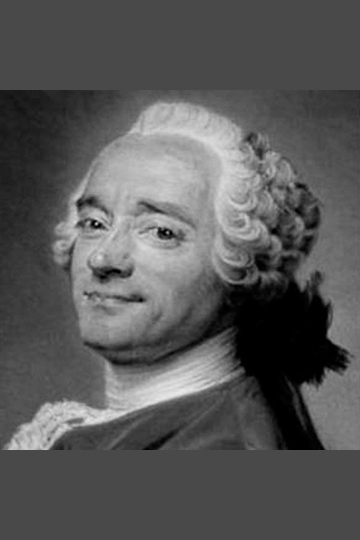
Fougeret de Monbron
Louis-Charles Fougeret de Monbron (also spelled Montbron), born on December 19, 1706 in Péronne and died on September 16, 1760 in Paris, was a French man of letters and was the second son of Jean Fougeret, a financier from Peron, receiver of the Fermes, and Marie Parvillers. A great traveller, Fougeret de Monbron used his travels throughout Europe to write Le Cosmopolite ou le Citoyen du Monde (1750). He is the author, among others, of La Henriade travestie (Berlin [Paris], 1745, in-12), probably the most widely distributed burlesque work of the Age of Enlightenment, where he indulged in a parody almost verse by verse of the original by Voltaire.